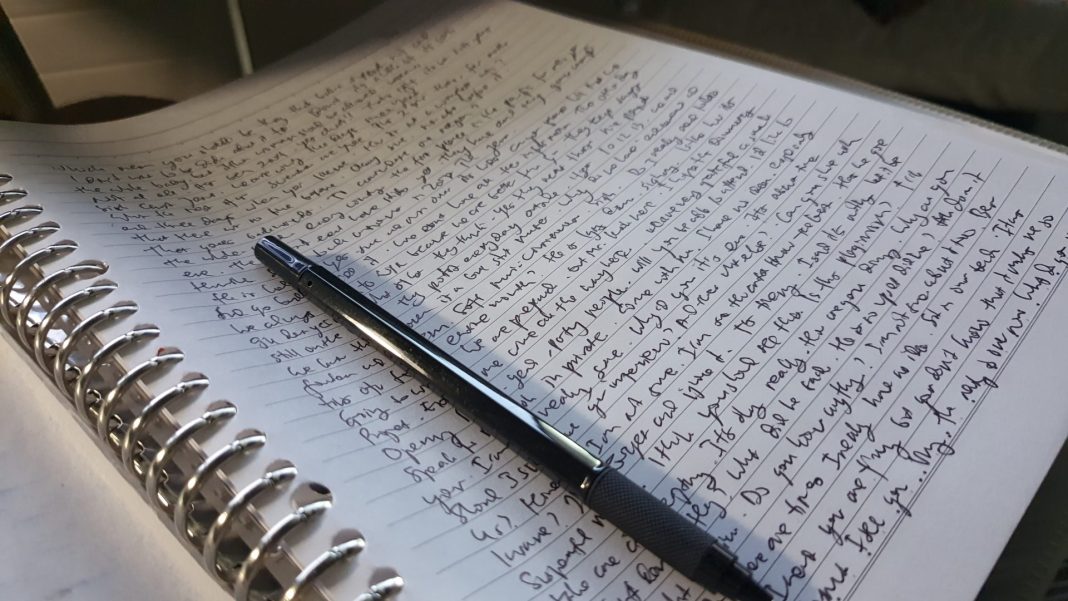In 1962, Edward Anthony wrote: “Writing a book of poetry is like dropping a rose petal down the Grand Canyon and waiting for the echo”. The Oxford-based author Richard Churchill seems to desire a similar effect with his self-published poetry collection Sketches from a Curious Mind (2025), the first full anthology of his poems. The thematically structured collection encapsulates a wide range of ideas and worldly issues, spanning poetry written over two decades. The author himself calls it a mixture of “personal reflection, surreal daydreams, and tongue-in-cheek satire”. However, I am not sure whether the desired echo actually mirrors the effect this anthology produces.
The opening interludes – occurring at the beginning of each thematic chapter – explain the poems, but consequently diminish any trace of confidence they should have ideally inspired in their readers. They not only pre-empt the contents of the texts themselves, but feel as if the author is trying so hard to place them in their accurate context that their chance to affect any subjective imprint is entirely denied. Consequently, the poems themselves don’t stand a chance to foster an emotional connection with their readers, nor are readers free enough to interpret them subjectively. The way they must be interpreted and understood has already been decided and communicated by the author which results in unwanted disinterest and vast reader frustration. Whilst the desire to contextualise creative writing is understandable, it unfortunately takes away from the poetry itself even when the intention is to add to it. Poems such as ‘Vernal Beauty’ are sweetly described, but ultimately unable to provoke an emotional response due to the overused metaphors employed to describe the changing seasons and beauties of the natural world. In ‘Autumnal Treasures’ the author exemplifies this simplicity by describing: “In comes spring with grace and promise,/The chill lifts,/Life awakes,/British rainfall,/Easter toothache,/A season of hope and beauty”.
Its attempts at almost-rhymes, followed by accidental repetitions of words that do actually rhyme, and general lack of any consistent form cause it to be inherently unable to generate a sense of personal connection or poetic intensity. In ‘Christmas Splendour’, Churchill seems to be of the opinion that “manger” and “strangers” rhyme, however, simply deconstructing basic English grammar and word order – just to make a rhyme work (instead of reformulating it) – does not scream poetic mastery.
Conversely, the themes in the collection are generally relevant, insightful, and carefully chosen, resulting in poems such as ‘Little Blue Dress’, which culminates in a fascinating personal exploration of identity unravelling and the discovery of Drag. The only thing taking away from it is (again) the author over-explaining beforehand. The same goes for ‘The Piano’, a poem written from the perspective of a piano, which provides an interesting point of view, but is clumsily paced and therefore fails to live up to its full potential. The depiction of different countries in Haiku form is well done and rather amusing, accurately capturing the essence of the English as “Country of heroes/Sip tea under grey skies/Dreaming of days past”, whilst ‘The Poet’s Spell’ delivers a vulnerable insight into the author’s creative process. Equally, ‘Freshers’ successfully captures the madness that is Freshers’ week, a chaotic whirlwind of emotions and experiences known to all university students.
I was surprised and taken aback, however, at the following words opening his section ‘Memories in Motion’. The author actually writes: “Congratulations on making it this far—I’m genuinely impressed!”, which left me stunned as the author apparently believes neither in the quality of his own writing nor in the reader’s endurance. If he hasn’t lost the reader already, he definitely will at this point. The statement leaves you confused and frustrated with the anthology and what it is trying to do.
The final part is more enjoyable with some thought-provoking questions being raised. Whilst ‘Oxymoron’ is refreshingly funny and ‘The people who made me’ marks a delicately wholesome ending to the anthology, I fear that the vast majority of the poetry in the collection suffers from stylistic problems. Churchill’s style seems too curated to appear honest or individual. Consequently, the anthology lacks the sophistication to transform itself into a profound vessel of communication – despite its promising ideas.


